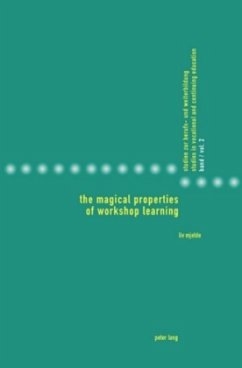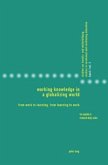Pedagogical theory arising from general education has long dominated discourse in both research and policy-making in education: this is also evident in vocational studies. Today, both locally and internationally, the complex processes of vocational pedagogy play a central role in the discussions. Work-based learning, the master-apprenticeship learning tradition, and the pedagogy of vocations and professions are all important concepts in on-going education policy debates. Contradictions between different learning traditions are clearly evident in vocational pedagogy: learning according to the workshop traditions or learning in the classroom, vocational theory and general theory, learning at school and learning in a work situation. This book is based on research in Norway and examines problems of teaching and learning in relation to vocational curricula of upper secondary schooling, apprentices' experiences and masters thesis-writing in the field of vocational pedagogy. The book also explores the question of vocational education and gender, today and in the past.
«Das Buch ist eine interessante 'Policy'-Analyse, die vor allem Aufschluss über die Entwicklung in der norwegischen Berufsbildung in den letzten Dekaden gibt. Mjelde liefert wichtige Begründungen für die Realisation des 'Workshop Learnings' und Anregungen für dessen Umsetzung. Ihre Verfechtung des holistischen Lernansatzes, der von renommierten Pädagogen schon seit langem als nachhaltige Lehr-Lern-Methode proklamiert wird, liefert Anregung zur reflexiven Auseinandersetzung mit aktuellen Regelungen und Strukturen in der norwegischen Berufsausbildung. Ihr Buch dient zudem als Anregung für Berufspädagogen die eigene Lehrtätigkeit zu reflektieren und in Richtung auf mehr Problemorientierung sowie Individualisierung zu entwickeln.» (Antje Barabasch, Erziehungswissenschaftliche Revue)








